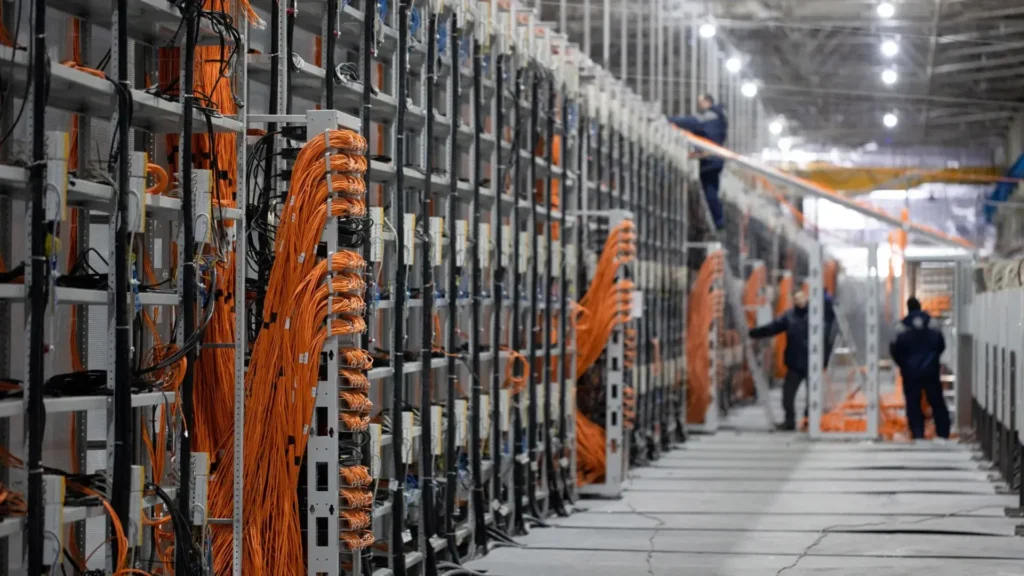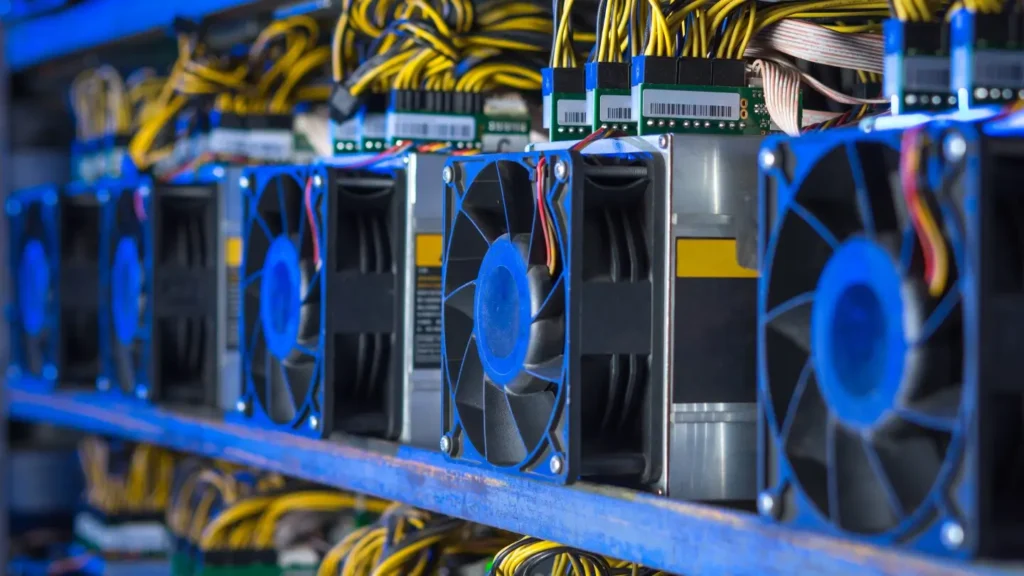Iran’s Power Grid Buckles Under Crypto Mining Pressure
Iran is grappling with a growing energy crisis as unauthorised crypto mining ramps up across the country. The surge in illegal activity is placing an immense burden on the national power supply, sparking fears of widespread blackouts during the high-demand summer months.
The issue lies in the enormous energy consumption required to mine cryptocurrencies like Bitcoin. These operations depend on computers running non-stop, often tucked away in private homes, farms, and industrial sheds. As temperatures rise and more people rely on air conditioning, the demand for electricity is set to climb further—at a time when the grid is already struggling to cope.

Image 1: Bitcoin mining: (Source: Al Jazeera)
Massive Energy Drain from Underground Operations
Iranian officials are reporting a sharp increase in illicit crypto mining setups. In May alone, over 5,000 unlicensed machines were seized. These units are estimated to be drawing more than 4,000 megawatts of power, an amount that dwarfs the output of Iran’s only nuclear power station.
This underground activity is now estimated to be draining power equivalent to that needed by several provinces combined. With hundreds of thousands of machines running covertly, the national grid is under immense pressure—just as electricity demand is set to reach its annual peak.
This surge in consumption could force energy authorities to roll out planned power outages across residential neighbourhoods to prioritise supply for essential services like hospitals and water systems. Iranians in cities and towns could be left without power for hours at a time, particularly during the hottest part of the day.
Safety Hazards and Patchy Enforcement
Beyond the issue of supply and demand, there are mounting concerns about safety. Many illegal miners operate their rigs in cramped or unsuitable spaces, lacking adequate ventilation or electrical safeguards. As a result, there has been a noticeable uptick in reports of electrical fires, damaged infrastructure, and health complaints from heat buildup and poor air circulation.
Although Iran legalised cryptocurrency mining in 2019 in a bid to attract foreign capital and bolster its heavily sanctioned economy, only licensed operations were meant to be allowed. Those with official approval are required to pay higher electricity rates and sell their mined cryptocurrency back to the central bank.
But the lure of cheap power has proven too tempting. Despite the regulations, unauthorised crypto mining operations continue to spread, avoiding taxes and government oversight. These activities often go undetected for months, and enforcement efforts have not kept pace. While authorities conduct occasional raids, many underground miners simply relocate or rebuild once equipment is seized.

Image 2: Mining (Source: Middle East Forum)
History Repeating and a Difficult Road Ahead
This isn’t the first time Iran has faced this problem. Back in 2022, the government was forced to temporarily shut down all of its legal crypto mining centres during a similar summer energy crunch. At the time, power consumption was nearing all-time highs, prompting drastic measures to protect the grid from collapse.
Even with those steps, illegal mining has continued to thrive, highlighting gaps in enforcement and monitoring. By June 2021, Iran was responsible for nearly 7% of the global Bitcoin mining activity, ranking it among the world’s top 10 countries for crypto mining. This was largely driven by the availability of inexpensive electricity, which attracted many miners to set up operations within the country.
Officials have warned that as electricity demand rises during the summer months, the ongoing strain from illegal crypto mining could lead to power shortages. Without stronger enforcement to control unauthorised mining, Iran’s electricity grid may face serious challenges in meeting peak demand. This could result in rolling blackouts affecting homes and businesses. Energy authorities are calling for better coordination between regulators and security forces to address the issue before the situation worsens.

